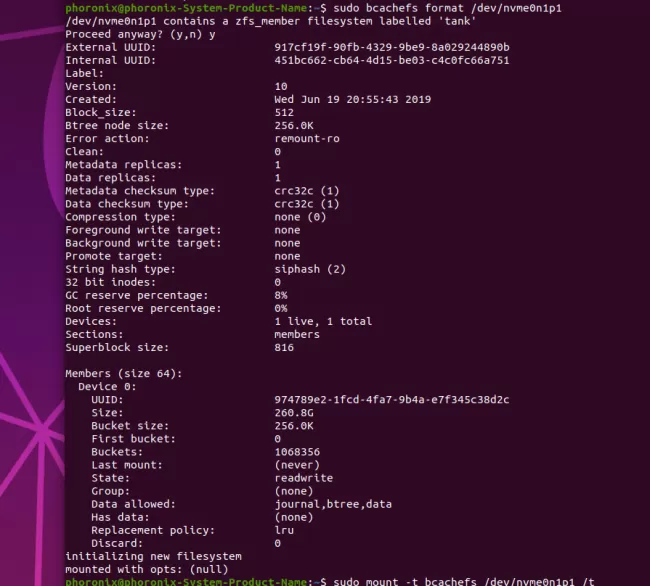The long-in-development Bcachefs file-system driver was submitted for Linux 6.5 but never merged this cycle due to various technical issues and developer in-fighting. Linus Torvalds himself has now gotten around to reviewing the proposed code and chiming in on the situation.
Linus Torvalds yesterday finally was able to wrap up his review of the Bcachefs code. He's voiced his concerns around some of the locking code and that some of the Bcachefs prerequisite code should go in via the respective subsystem/maintainer branches rather than one big monolithic pull.
Torvalds' current position on the Bcachefs state for merging basically comes down to:
All of Torvalds' review comments can be read in this mailing list thread.

Lead Bcachefs developer Kent Overstreet has expressed interest in re-submitting for Linux 6.6, so we'll see if the Bcachefs issues and developer arguments are able to cool down within the next few weeks.
Linus Torvalds yesterday finally was able to wrap up his review of the Bcachefs code. He's voiced his concerns around some of the locking code and that some of the Bcachefs prerequisite code should go in via the respective subsystem/maintainer branches rather than one big monolithic pull.
Torvalds' current position on the Bcachefs state for merging basically comes down to:
"So as things stand now, the stuff outside bcachefs itself I don't find objectionable.
The stuff _inside_ bcachefs I care about only in the sense that I really *really* would like a locking person to look at the six locks, but at the same time as long as it's purely internal to bcachefs and doesn't possibly affect anything else, I'm not *too* worried about what I see.
The thing that actually bothers me most about this all is the personal arguments I saw. That I don't know what to do about. I don't actually want to merge this over the objections of Christian, now that we have a responsible vfs maintainer.
So those kinds of arguments do kind of have to be resolved, even aside from the "I think the prerequisites should go in separately or at least be clearly acked" issues."
All of Torvalds' review comments can be read in this mailing list thread.
Lead Bcachefs developer Kent Overstreet has expressed interest in re-submitting for Linux 6.6, so we'll see if the Bcachefs issues and developer arguments are able to cool down within the next few weeks.

